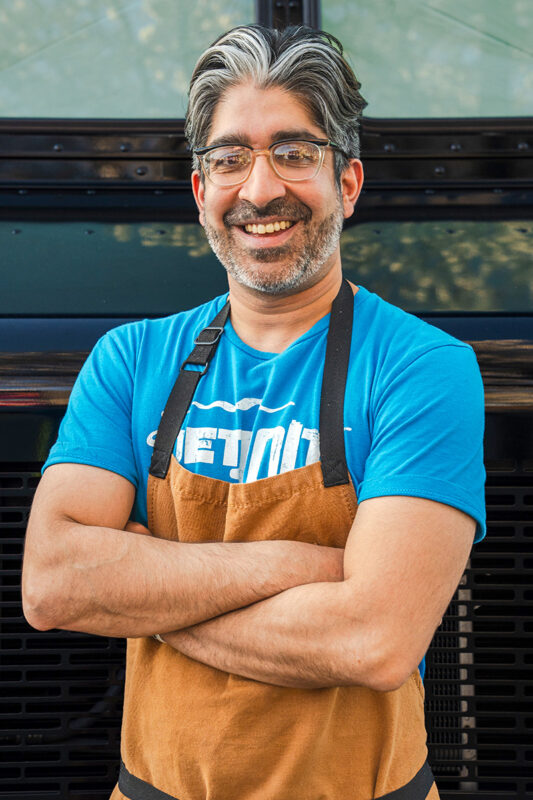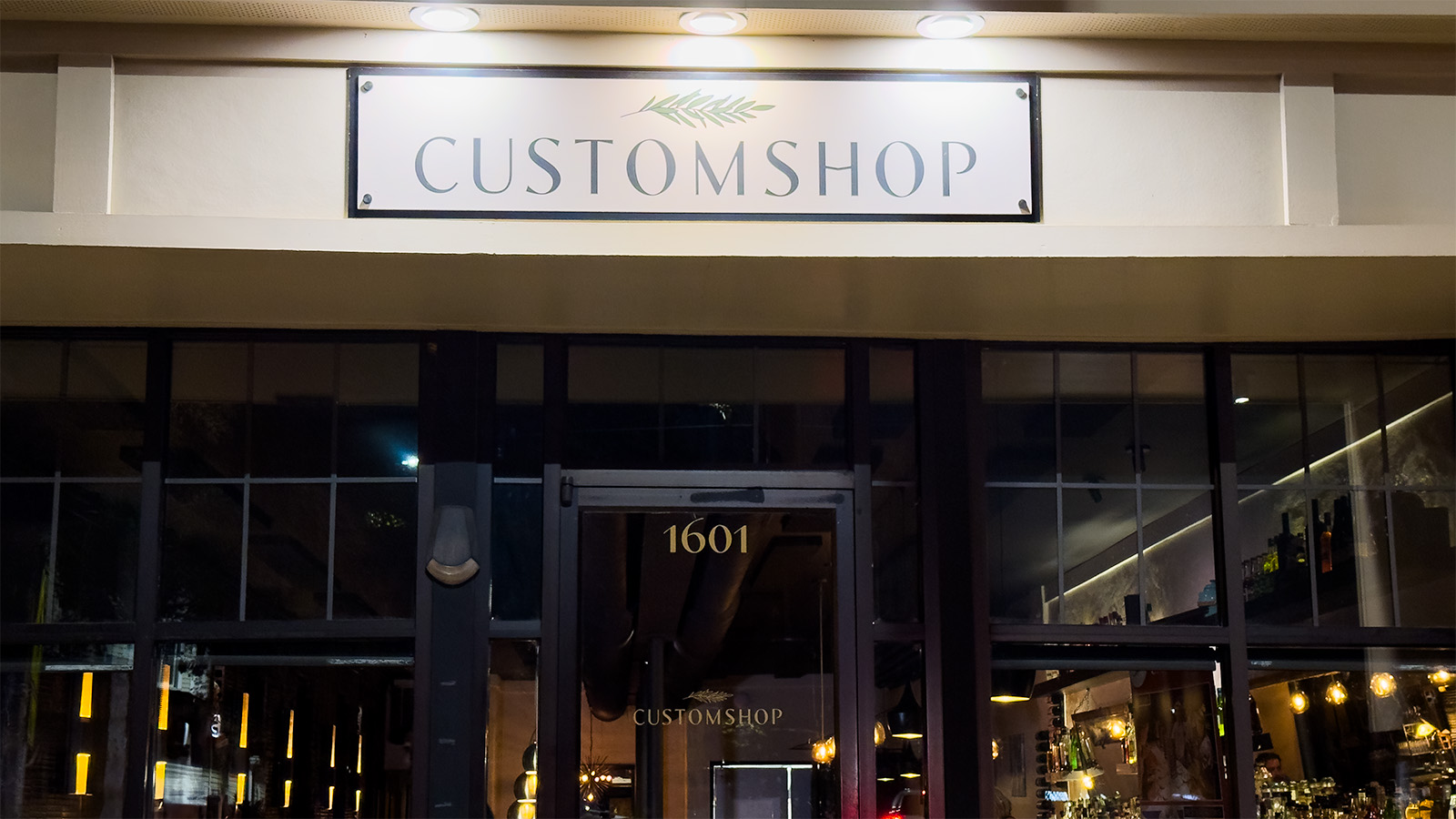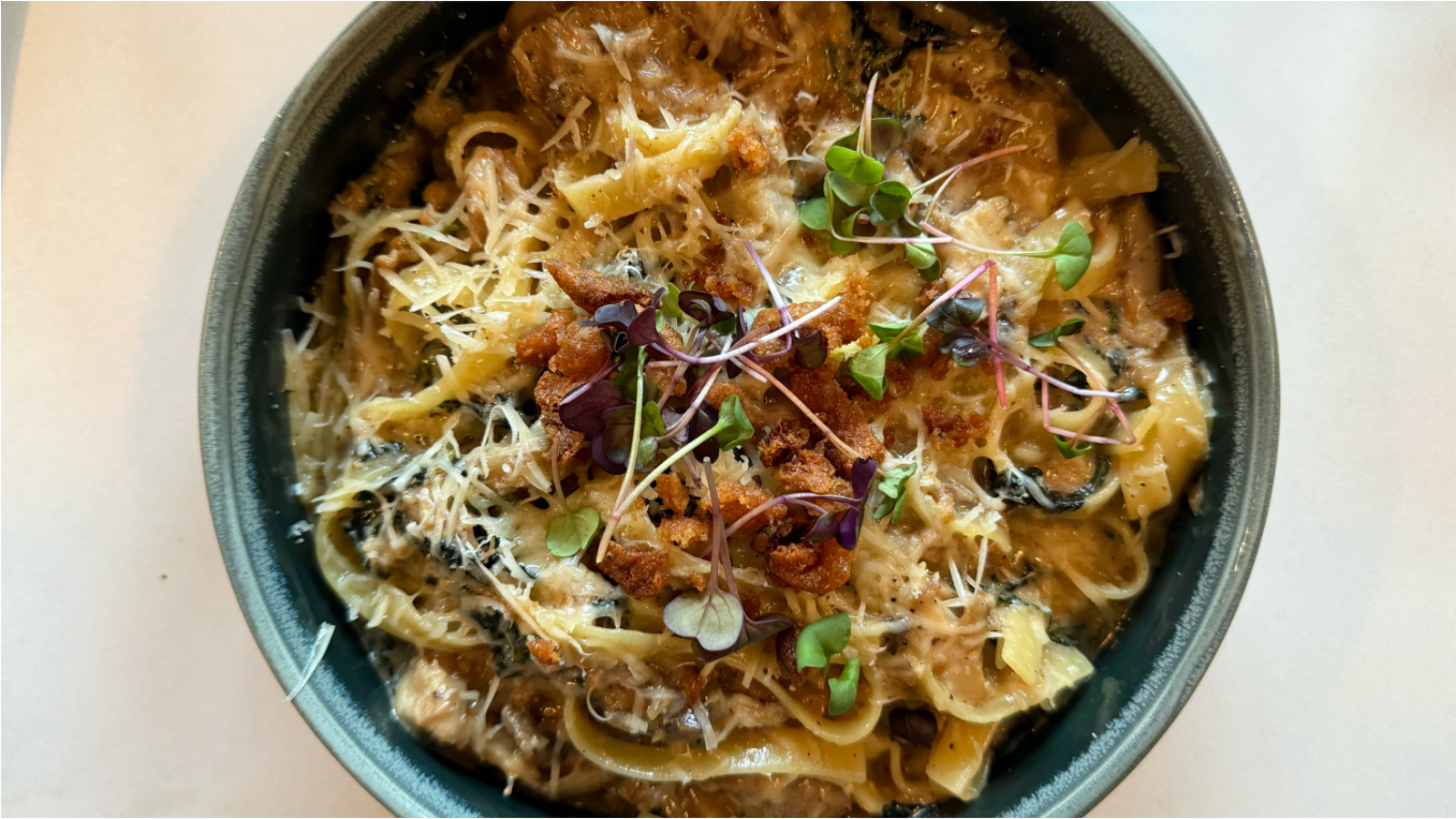April 18, 2025
Day in the Life: Arjun Verma of Chutney Cat
How a food truck chef is bringing his love for Indian barbecue to Charlotte
by Jacqueline Pennington

Arjun Verma’s love for Indian street food started young. While growing up in India, he used to skip school to eat snacks served by the food carts that lined the streets. Little did he know that many years later he would draw inspiration from those experiences to start an endeavor of his own serving similar snacks out of his food truck, Chutney Cat.
Arjun came to the United States to study film at Hofstra University but found that he belonged in kitchens after spending time working in Detroit, mostly in front-of-house and bar manager roles. After transitioning to the kitchen and building up his cooking experience, he started doing monthly pop-ups around Detroit to share his food. “I didn’t even have a brand name,” says Verma. “I would just show up with my steam table and two kinds of curries and some rice and sell out of it.”
It was the pandemic that pushed Verma to reassess his situation and decide whether to go back to school or start his own business. He ultimately landed on opening a food truck, and after an incident that involved his cat and chutney ramekins being swiped to the floor, he decided to name it Chutney Cat. He spent several years learning the lessons of running a successful food truck by tackling long hours, Detroit traffic, Michigan weather, truck breakdowns, and the like. “The biggest thing about food trucking is logistics,” says Verma. “And you’re working outside. You’re dealing with the elements.”
In 2023, Verma and his parents moved to Charlotte, and he brought his business with him. Chutney Cat is the only food truck in Charlotte and possibly the state with a tandoor, a cylindrical, high-temperature oven used to make items like tandoori chicken and naan. He serves a menu of kathi rolls, chaat, and chutneys inspired by his childhood in India and the cooking of his mother and grandmother, whom he would often stand alongside in the kitchen while they cooked for his family.
“I associate food with memories, so sometimes when I make food, I think about how it can reawaken a kind of emotion,” says Verma. “Bringing Indian BBQ to the forefront is a huge deal for me, and what better area to represent it than in BBQ country?”
Here’s what a day in his life looks like.
6:45 a.m.: “On a typical day, I’m usually up by 6:45-7:00 and I will spend time with my parents,” Verma says. “I don’t drink any coffee because I am a heart patient, so I drink a little bit of tea, walk my dog, and play with my cat for a little bit.”
8:30 a.m.: Verma will start his day either going to the Chef’s Store to stock up on essentials or will head to Patel Brothers in Pineville to pick up specialty items like Indian spices, potato patties, etc. “I usually buy about 60 pounds of meat,” Verma says. “That would be about 40 pounds of chicken, 10 pounds of beef, and another 10 pounds of lamb. Then I do all the shopping for the other things that I need to get like garbanzo beans and tomato paste.”
10 a.m.: Verma pays to book tables in advance at Carolina Commercial Kitchen, where he preps all of his food for the day. “I pay $40 an hour to prep, so that’s why when you see food truck prices are high, it’s because preparation times are very high and expensive for us,” says Verma.
“I start by cleaning the chicken and cutting it into the sizes that I need because it has to fit on the skewers a certain way, and there’s a certain amount of pieces that are going into each wrap. Simultaneously, I’m cooking the beef behind me on the stove. After all of that is done, I start chopping up the leg of lamb and grinding it up and combine it with all the spices and seasonings. So, in total, that takes about four hours.”
3:30 p.m.: After packing up the truck and driving to his location for the evening, he starts the next round of preparations. It takes about 40 minutes for the tandoor to heat up so he factors that into his time, along with how many batches of chicken he may have to cook. Then, he finally gets a helping hand.
“My employee might show up one hour early, and then we’ll do the last finishing touches like slicing some onions, getting the garnishes ready, and preheating some pans,” says Verma. “We make sure everything is ready for service, and if we’re ready before 5:00, we open up before 5:00.”
5 p.m.: “We serve from 5:00 and at about 8:30 we stop taking orders,” Verma says. “I like to be hopefully at least sold out of what we have, which happens usually by 7:30-8:00. That’s at least three hours of service which seems like it’s not a lot, but the thing is I’ve already been prepping all day so you’re running restaurant hours whether you’re selling or not, you’re putting in all that same work.”
8 p.m.: “We finish service and start putting everything back where it’s supposed to be,” Verma says. “Some truckers wash the dishes on the truck, but I don’t know when the facility has much better washing equipment. So, we load up and go back to the commissary by 8:30-9:00. At that point, I clean up a little bit, mop the floor, and reset for tomorrow. If I have to do a little bit more prep, I could do it that night, but I usually just like to get home because I have a dog and cat I have to get back to.”
9:45 p.m.: After eating some food from Chutney Cat or heating up a frozen meal, Verma settles in to relax on his couch to recharge and prepare for another 12 hour day of bringing authentic Indian street food to the streets of Charlotte.
Verma hopes to slow down and open a small brick-and-mortar operation in the coming years. Until then, you can find him at Birdsong Brewing every Wednesday and other locations throughout the Queen City detailed on his website.
This story has been unlocked by Chutney Cat. Paying to unlock a story offsets the loss off the subscription revenue we rely on to continue telling Charlotte’s food stories. Want to unlock a news story? Reach out to us.











